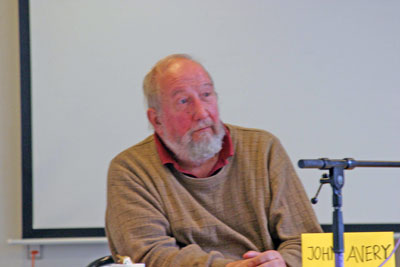Construction Versus Destruction
By John Scales Avery
19 September, 2012
Countercurrents.org
It is often said that ethical principles cannot be derived from science , that they must come from somewhere else. Nevertheless, when nature is viewed through the eyes of modern science, we obtain some insights which seem almost ethical in character. Biology at the molecular level has shown us the complexity and beauty of even the most humble living organisms, and the interrelatedness of all life on earth. Looking through the eyes of contemporary biochemistry, we can see that even the single cell of an amoeba is a structure of miraculous complexity and precision, worthy of our respect and wonder.
Knowledge of the second law of thermodynamics , the statistical law favoring disorder over order, reminds us that life is always balanced like a tight-rope walker over an abyss of chaos and destruction. Living organisms distill their order and complexity from the flood of thermodynamic information which reaches the earth from the sun. In this way, they create local order; but life remains a fugitive from the second law of thermodynamics. Disorder, chaos, and destruction remain statistically favored over order, construction, and complexity.
It is easier to burn down a house than to build one, easier to kill a human than to raise and educate one, easier to force a species into extinction than to replace it once it is gone, easier to burn the Great Library of Alexandria than to accumulate the knowledge that once filled it, and easier to destroy a civilization in a thermonuclear war than to rebuild it from the radioactive ashes. Knowing this, we can form an almost ethical insight: To be on the side of order, construction, and complexity, is to be on the side of life. To be on the side of destruction, disorder, chaos and war is to be against life, a traitor to life, an ally of death. Knowing the precariousness of life, knowing the statistical laws that favor disorder and chaos, we should resolve to be loyal to the principle of long continued construction upon which life depends.
War is based on destruction, destruction of living persons, destruction of homes, destruction of infrastructure, and destruction of the biosphere. If we are on the side of life, if we are not trators to life and allies of death, we must oppose the institution of war. We must oppose the military-industrial complex. We must oppose the mass media when they whip up war-fever. We must oppose politicians who vote for obscenely enormous military budgets at a time of financial crisis. We must oppose the planned illegal and insane Israeli attack of Iran, which threatens to lead to a world-destroying conflict. We must oppose these things by working with dedication, as though our lives depended on it. In fact, they do.
 John Avery received a B.Sc. in theoretical physics from MIT and an M.Sc. from the University of Chicago. He later studied theoretical chemistry at the University of London, and was awarded a Ph.D. there in 1965. He is now Lektor Emeritus, Associate Professor, at the Department of Chemistry, University of Copenhagen. Fellowships, memberships in societies: Since 1990 he has been the Contact Person in Denmark for Pugwash Conferences on Science and World Affairs. In 1995, this group received the Nobel Peace Prize for their efforts. He was the Member of the Danish Peace Commission of 1998. Technical Advisor, World Health Organization, Regional Office for Europe (1988- 1997). Chairman of the Danish Peace Academy, April 2004. http://www.fredsakademiet.dk/ordbog/aord/a220.htm
John Avery received a B.Sc. in theoretical physics from MIT and an M.Sc. from the University of Chicago. He later studied theoretical chemistry at the University of London, and was awarded a Ph.D. there in 1965. He is now Lektor Emeritus, Associate Professor, at the Department of Chemistry, University of Copenhagen. Fellowships, memberships in societies: Since 1990 he has been the Contact Person in Denmark for Pugwash Conferences on Science and World Affairs. In 1995, this group received the Nobel Peace Prize for their efforts. He was the Member of the Danish Peace Commission of 1998. Technical Advisor, World Health Organization, Regional Office for Europe (1988- 1997). Chairman of the Danish Peace Academy, April 2004. http://www.fredsakademiet.dk/ordbog/aord/a220.htm
Comments are moderated


